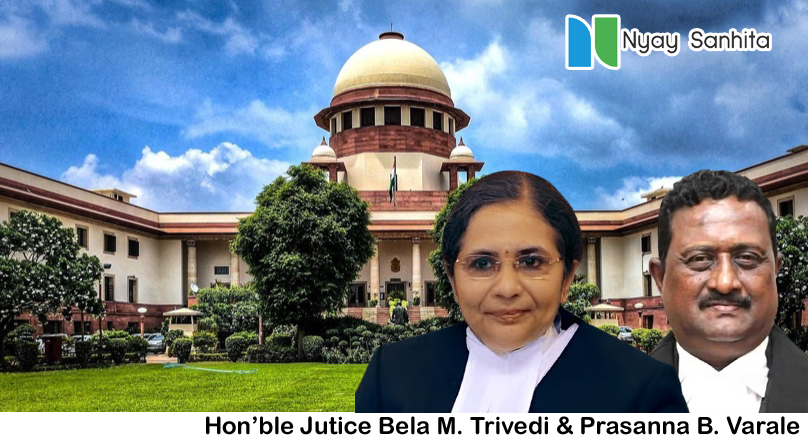
The Supreme Court has clarified that the inherent powers vested in the High Court under Section 482 of the Criminal Procedure Code, 1973 (CrPC) do not confer arbitrary jurisdiction, emphasizing that such powers must be exercised judiciously. In a recent case, the Court allowed appeals filed by the Directorate of Enforcement (ED), challenging High Court orders that had suspended proceedings against the accused.
The Supreme Court noted that the High Court, by issuing orders to halt investigations and prevent coercive actions by investigative agencies, effectively granted broad injunctions against arrests without the accused first seeking anticipatory bail under Section 438 of the CrPC. Justices Bela M. Trivedi and Prasanna B. Varale, forming the bench, reiterated that the inherent powers under Section 482 of Cr.PC should be sparingly used and only in the rarest of rare cases.
The case involved India Bulls Housing Finance Limited (IHFL), its officers Niraj Tyagi and Reena Bagga, and M/s Kadam Developers Pvt. Ltd. IHFL, a non-banking financial institution dealing with public funds, faced litigation due to defaults on loans extended to the Shipra Group. This led to the eventual sale of pledged shares and mortgaged properties for recovery, prompting multiple FIRs alleging financial irregularities.
IHFL filed a writ petition, but the Court disposed of it on July 4, 2023, without hearing the appellants. Respondents Niraj Tyagi and IHFL filed writ petitions in the High Court seeking relief, resulting in orders staying proceedings related to the FIRs and ECIR against them pending the writ petitions.
The Supreme Court criticized the High Court’s action to stay investigations, noting that it disregarded established legal precedents, allowing such stays only under exceptional circumstances. The bench emphasized that the High Court should not have stayed investigations and restrained investigating agencies, particularly when the investigations were at a nascent stage.
While recognizing the High Court’s authority under Section 482 of CrPC to quash proceedings, the Supreme Court stressed that such power should be exercised judiciously and sparingly, only in exceptional circumstances. The Court highlighted that the High Court’s orders effectively issued blanket orders against arrest without the accused seeking anticipatory bail under Section 438 of CrPC.
Referring to legal precedents and guidelines, the Supreme Court held that higher courts must adhere to established legal principles, and their extraordinary powers do not grant arbitrary jurisdiction. Consequently, the impugned orders by the High Court were set aside, and the interim orders concerning the respondents accused in the appeals were immediately revoked. The Court allowed the appeal filed by the Directorate of Enforcement.
Case Title: Directorate Of Enforcement v Niraj Tyagi & Ors.
directorate-of-enforcement-v-niraj-tyagi-2024-NyaySanhita-SC-001
It is very useful
Thank You for using this site for information. Share information with others for knowledge.